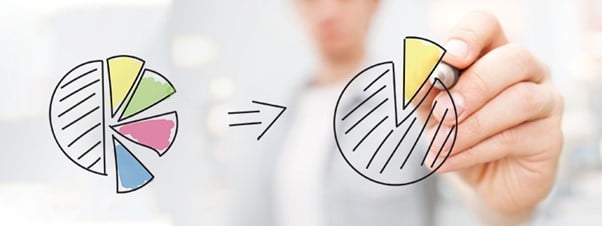- Accounts
- About
- Trading
- Platforms
- Tools
- News & education
- News & education
- News & analysis
- Education hub
- Economic calendar
News & Analysis
Share buybacks and Dividends. How do they compare?
7 February 2022
As a shareholder of any company, you can be rewarded by that company in the form of share buybacks and dividend pay-outs. These actions would often occur when a company is performing well and thus have the means to reward their shareholders. The company’s profits would also often be used to invest back into the company.
Dividends have been the most traditional form of rewarding shareholders for their loyalty. Well performing companies would often set a goal to put aside a proportion of their profits to pay out dividends on a regular basis (this can be either half-yearly or yearly). This would be done to attract potential investors to buy and hold the shares. Dividend payments would contribute towards your income tax, and you would need to pay any tax owing.
Dividend can often be used to indicate a company’s performance. An increase in dividend would often be seen as a positive. This can happen when a company has an increase in profit. Whilst a reduction in dividend can be seen as the company performing poorly, as there is less profit to be shared with the shareholders.
In contrast to dividends, a company can issue a share buyback at any time, whilst dividends must adhere to a strict timetable.
A share buyback occurs when a company spends money, sometimes borrowed, to buy back its own shares. This would result in a reduction of the number of shares in circulation and thus increase the earnings per share (EPS). An increase in EPS could attract new investors, which can result in an increased value of the shares.
Some advantages of share buybacks are (possible) lesser taxation and greater flexibility.
The increase in share prices can be seen as a profit and the capital gains tax would only be payable once the shareholder sells their shares. Compared to dividends, the income taxes are paid upon receiving the dividends.
A dividend paying company does not have to issue dividends. However, if the company decides not to issue dividends or has a reduction in dividends, this can reflect negatively on the company. This can often scare shareholders into selling their shares, which can result in a decrease in the value of the share. Share buybacks are not always expected by investors but once it is announced, it can be seen as a bonus and attract new investors.
Some disadvantages of share buybacks are a company’s increasing debt, opportunity cost and creating a false positive.
Share buybacks often do not affect a company’s productivity. This is particularly true when the company borrows funds to issue buybacks rather than using cash. These funds could have been used to invest into assets or research and development, which can positively affect the company’s profitability.
Although the share buyback can be funded with cash, it still begs the question of what the true opportunity cost of that extra cash is. Some examples of uses for the extra cash can be: new equipment, staff skill development, paying down debt or expanding via company acquisitions.
Some company directors and executives can have incentives to increase the value of the share and thus, they would often choose to issue share buybacks over the options mentioned above. The increase in share prices can often attract short-term investors rather than long-term investors who can see and believe in the value of the company. This increase in price can falsely lead investors to believing a company is performing exceptionally well. However, this is attributed to clever financial engineering rather than organic growth.
All in all, buybacks would often give a company a short-term boost, and the true value of the company would often come from their ability to grow, financial stability and profitability. Dividends can be used as an indicator of a company’s performance. As an investor, researching a company’s historical buybacks and dividends can lead to discovering the company’s true value.
Source: Fxstreet, Investopedia.
Disclaimer: Articles are from GO Markets analysts and contributors and are based on their independent analysis or personal experiences. Views, opinions or trading styles expressed are their own, and should not be taken as either representative of or shared by GO Markets. Advice, if any, is of a ‘general’ nature and not based on your personal objectives, financial situation or needs. Consider how appropriate the advice, if any, is to your objectives, financial situation and needs, before acting on the advice. If the advice relates to acquiring a particular financial product, you should obtain and consider the Product Disclosure Statement (PDS) and Financial Services Guide (FSG) for that product before making any decisions.
Next Article
How to identify key resistance levels
A resistance level is a key tool in technical analysis, indicating when an asset has reached a price level that market participants are unwilling to surpass. Resistance levels are often used in conjunction with support levels, or the point at which traders are unwilling to let an asset's price drop much lower. To understand this fully, it’s im...
February 8, 2022
Read More >
Previous Article
Amazon Q4 financial results are in
Amazon.com (AMZN) announced its fourth quarter results after the closing bell on Thursday. The company reported total revenue of $137.412 billion (...
February 4, 2022
Read More >

